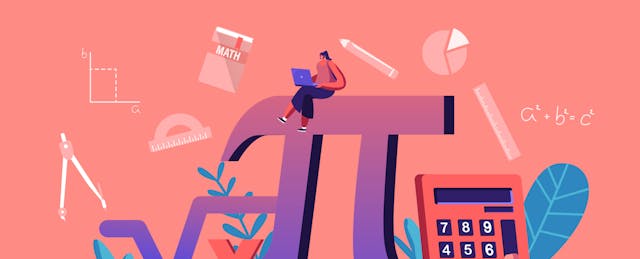Algebra I should be a gateway—not gatekeeper—to students’ future academic success, in college and beyond. So says the Bill & Melinda Gates Foundation, which is issuing a challenge to developers and service providers working to make the subject more broadly accessible.
Dubbed “Balance the Equation,” the competition will award up to $1 million in grants for up to 10 education technology developers, nonprofits and other organizations working to solve the algebra problem, especially as it relates to making the subject more engaging and relevant for Black and Latino students, English language learners and those experiencing poverty. Applications, which will be open at 8 A.M. today, are due on Nov. 6. Awardees will be announced in early 2021.
“For students who have been historically marginalized, Algebra I has become a sort of gatekeeper course,” says Henry Hipps, deputy director of K-12 Education at the Gates Foundation. “Without access or success, their advancement to higher-order math and other skills, like abstract and critical thinking or data analysis, is obstructed.”
Research suggests that taking algebra courses in high school is one of several important indicators for students’ college readiness and success. Passing Algebra I is also a requirement for high school graduation. Studies in districts like Los Angeles Unified have found that students who passed Algebra I by 9th grade are twice as likely to graduate as those who did not.
However, access to algebra courses has been uneven. According to a report from the U.S. Department of Education Office of Civil Rights, during the 2015-16 school year, Black students made up 17 percent of all students in schools that offered Algebra I in eighth grade, but only 11 percent of the students enrolled in that class. Their Latino peers comprised 25 percent of students in schools that offered Algebra I in eighth grade, but just 18 percent of the students enrolled.

According to the report, passing rates for eight-grade Algebra I among Black, Hispanic and other minorities were lower than that of their white peers.
The competition isn’t about encouraging flashier math apps, says Hipps. The goal is to make Algebra I more accessible and engaging for underserved populations, which requires consciously designing curriculum and tools in ways that students identify with, and which reflect their lived experiences. So instead of introducing algebraic concepts through abstract formulas and variables, the subject can be framed through problems such as food deserts in low-income neighborhoods. Or through studying the disproportionate impact of COVID-19 on communities of color.
Hipps says he’s been inspired by efforts such as The Algebra Project, a nonprofit founded by civil rights activist and educator Bob Moses that aims to connect numeric concepts to students’ life experiences.
And though this is a math challenge, there are other components that Hipps believes are critical to designing inclusive experiences centered on students’ identities.
“There are deep intersections between social-emotional learning and academic outcomes,” he says. “But all too often, the SEL and academic work don’t connect and combine. There are opportunities to bring them together, to connect those who deeply understand the backgrounds of students with those at the leading edge of technical solutions.”
Beyond seeing novel math apps, tools and programs, Hipps hopes that the challenge also changes the conversation and breaks down prevailing stereotypes about “who math is for.”
As a Black student in a predominantly white school, he says he excelled in his studies in elementary school. But after doing poorly on a math placement exam in middle school, he was placed in a math class for students with learning disabilities. “There were no conversations with me, or my parents, or my English teacher, even though I was in an advanced English class,” he recalls.
A Persistent Challenge
The Gates Foundation’s challenge is the latest in an ongoing series of efforts to financially incentivize developers to build better math programs. Other organizers have included the New York City Department of Education, which in 2013 launched a “Gap App” competition for digital solutions focused on improving students’ math performance. Three years later, NewSchools Venture Fund, a nonprofit education philanthropy, awarded $1.5 million in its grant challenge for middle- and high-school math software developers.
With hundreds of digital math materials currently available, the subject is sometimes seen as a low-hanging fruit in the education technology market. But despite the abundance of these apps, something isn’t adding up when it comes to moving the needle on math achievement. Results from the 2019 NAEP for eighth-grade math, when algebra is sometimes first introduced, were essentially flat compared to a decade ago.
“There are a lot of math tools out there, but few have been designed with racial and socioeconomic equity as a consideration,” says Cameron White, a senior associate partner at NewSchools Venture Fund who oversaw the grant competition. “My hope is that we’ll see more products and content that connect with students’ backgrounds, and apply concepts to meaningful real-world challenges.”
Equitable access to digital math experiences, White adds, also requires that tools don’t eat up bandwidth or only work on high-end tech devices. “Especially with COVID-19 and school closures, we’re starting to see developers create offline experiences and activities that don’t require them to be online.”
Jo Boaler, an education professor at Stanford University who runs the math education nonprofit YouCubed, says one of the main problems with algebra instruction is that it is often couched in abstractions that feel divorced from the real-world problems that the subject is used to solve. To help students overcome that conceptual barrier, her work adapts concepts from “growth mindset” research to help students change how they think about their math abilities.
“When you combine the deeply procedural way that algebra is taught, with the impression that there are some who are just ‘math people,’ and the very real biases in communities that lack educational resources and opportunities, we create this devastating impact for marginalized students,” says Hipps.


